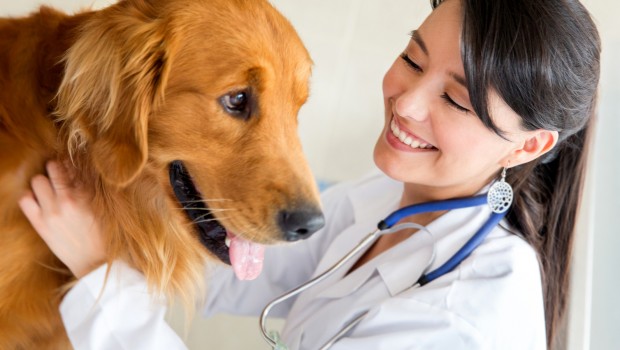Puppy Vaccinations and Over-The-Counter Medications
Having a happy puppy means keeping him healthy, and one of the primary concerns in raising a young pup is making sure he is in the best of health. This can be accomplished by starting out with good quality veterinarian care. In fact, bringing your new pup straight from the breeder, pet shop, or shelter, directly to the veterinarian is a wise beginning, especially when many pups come equipped with a short-term health guarantee.
Although your puppy’s doctor may not be able to foresee what the dog may be incubating, he can certainly point out congenital defects, lack of adequate care, and diseases that are already established and showing signs. He can also advise you about vaccinations, worming, and nutrition.
These three factors will be essential to keeping your puppy healthy during his early formal months. In fact, all puppy care advice should be absorbed with the complete and total understanding that definitive information on the individual puppy’s care should come exclusively from the veterinarian.
General Vaccinations
While vaccination procedures vary with the individual doctor and may depend on the puppy’s health and age, the general procedure is essentially the same. Your new pet will get a series of vaccinations at periodic intervals (typically 3 to 4 weeks) which will protect him until he reaches 15 to 16 weeks of age.
At this point, he will no longer be protected by the colostrum (the mother’s first milk) which supplies natural antibodies to protect newborn puppies temporarily against distemper. When he has outgrown this initial protection, the modified live distemper vaccine will have its full effect and will protect him for a year against the disease.
There is, at this time, no vaccine that is truly permanent. Every dog should have yearly booster vaccinations against distemper, hepatitis, and leptospirosis. If your new dog is over 14 weeks of age, then he will probably only need the final injection in the series to provide year-long immunity.
The rabies vaccine is not generally administered until a dog has reached approximately 6 months of age. However, in order to guarantee that your puppy is fully protected, it is extremely important to follow your veterinarian’s advice about the number and proper timing for vaccinations.
Protect Your Puppy From Over-The-Counter Medications
Several over-the-counter worming preparations are available for the pet owner to try. While many of these may be harmless when given to the healthy adult animal, they are potentially dangerous especially to the unthrifty puppy who is severely debilitated by parasitization and its side effects, or other unrelated diseases.






